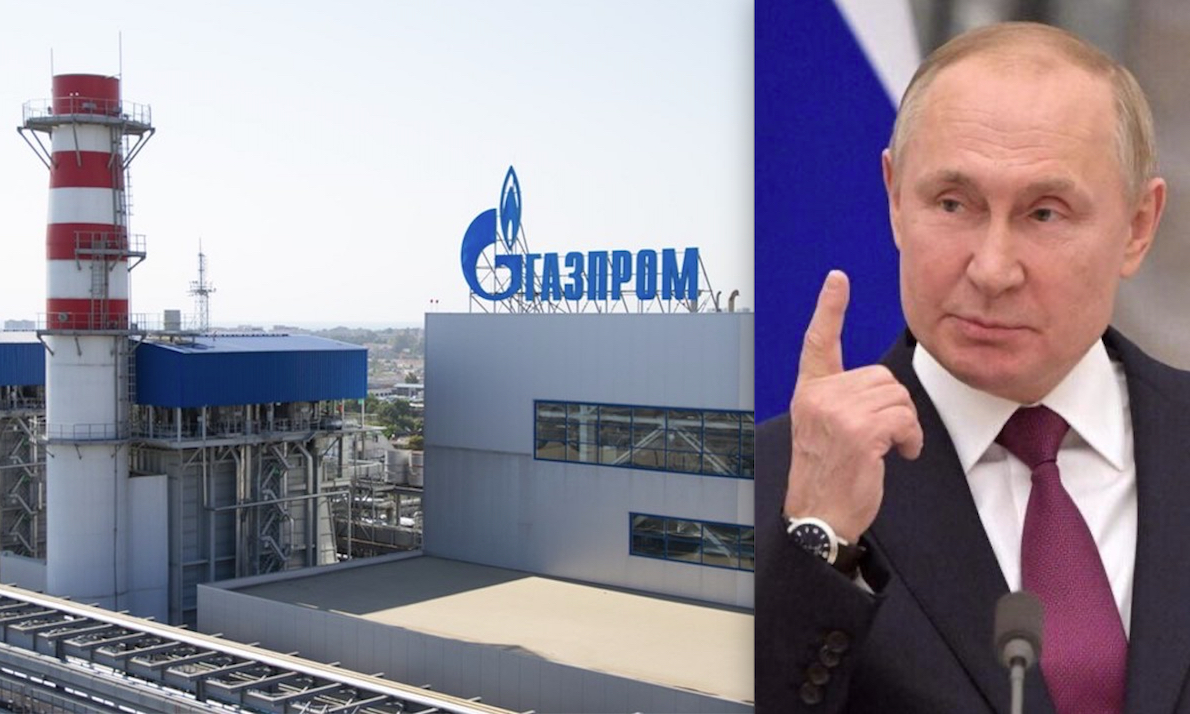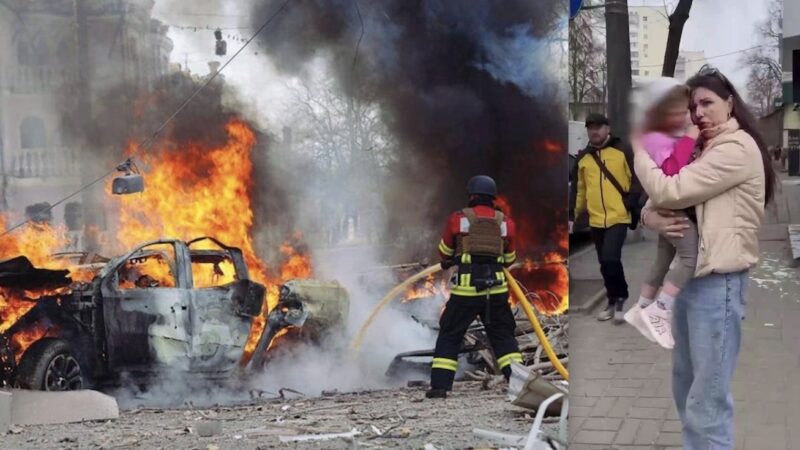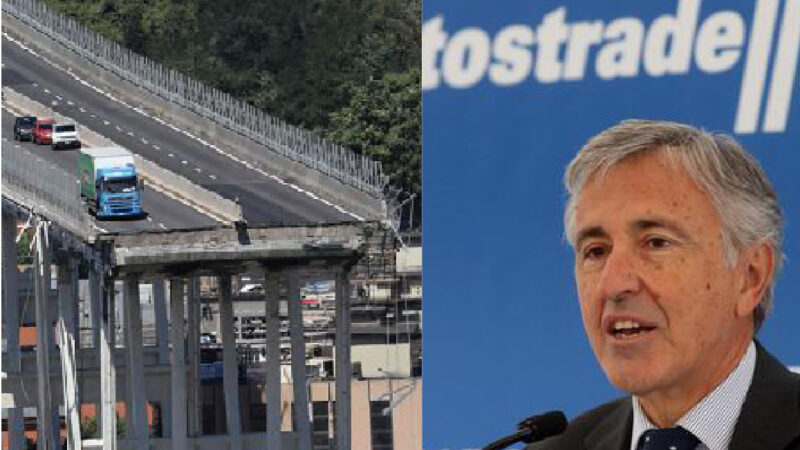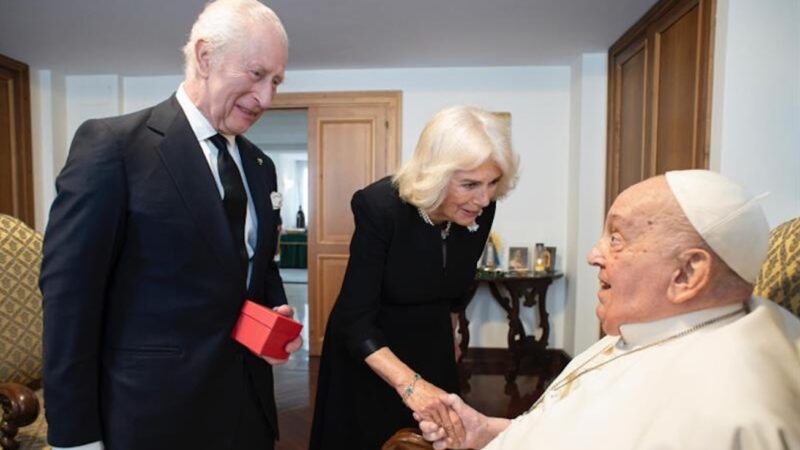The Gas & Oil Nightmare for EU and US after Russian invasion in Ukraine. Intel Source

Introduction by Fabio Giuseppe Carlo Carisio
To summarize a long video on Rumble (In Italian only) in recent days I published a quick reflection on the five-step scenario that can lead Italy, Europe and humanity to ruin: Pandemic, local war in Ukraine, famine, World War III and Apocalypse .
These are the imminent stages of the next few years if all men of good will and in particular good Christians will not be able to oppose the Masonic-military potentate of the New World Order which, by exploiting ancient alliances and governmental entities such as NATO, the USA, the European Union, aims to conquer the domination of the entire planet.
Yesterday we published the scientific article by the expert Cinthya Chung on the “criminal” policy of the European Union in the field of energy resources that favored the gas and electricity crisis with a mad surge in prices which began as early as 2020 and exploded in 2021.
Today we draw on the subject with the detailed analysis of the problem of The Soufan Center (TSC), the geopolitics and intelligence site created by the homonymous FBI agent who investigated the attacks of 11 September 2001 in New York. The fears I expressed in my video are absolutely confirmed.
NATO’s COUP IN UKRAINE: THE GENESIS – 2. Obama, Soros, MI6 & Kyiv Security Forum
TSC is strongly critical of Russia’s special military operation in Ukraine, motivated by the real protection of the pro-Russian republics of Donbass and by a plan of “demilitarization” and “denazification” studied by Putin in response to the coup that took place in Kiev in 2014 with the financial support of George Soros and the Western embassies and the following 6 years of civil war with 10 thousand deaths.
It should also be remembered that the disputed territory of the Donbass is rich in natural gas and oil and was one of the main targets of the Ukrainian energy industry Burisma whom was the administrator Hunt Biden, son of President Joseph who, as deputy of Barack Obama, managed the financing of the reform of the Kiev police and army.
by The Soufan Center
The unexpected failure of intensive U.S. and European diplomacy to deter Russia’s invasion of Ukraine has convinced European leaders to reduce their dependency on Russian exports of natural gas—the main energy source for the continent. However, solutions are neither simple nor quick. Russia produces 17% of all natural gas and 12% of the world’s oil. It supplies about 40% of European Union countries’ natural gas, some of which flows through pipelines that cross Ukraine.
UKRAINEGATE: an investigative “memo” accuses Joe Biden and John Kerry too. Reopened the inquiry
Russia’s gas conglomerate Gazprom has refused over the past several months to provide any more than the amounts specified in long term contracts, causing natural gas prices in Europe to increase significantly. Russia’s unprovoked invasion of Ukraine caused gas and oil prices to spike further; the price of crude oil initially increased to over $100 per barrel after the Russian assault began, a level not reached since 2014. In November 2021, according to the Energy Information Administration (EIA), the United States imported about 600,000 barrels per day of Russian oil.
The invasion represented a severe enough challenge to European security that leaders of Germany, despite initial hesitancy, suspended final approvals to activate the Nord Stream 2 gas pipeline from Russia in response. However, the dependency on Russian energy contributed to the decision by the Biden administration and U.S. partners in Europe not to impose sanctions on currently active infrastructure and supplies from Russia. Withholding the imposition of crippling energy sanctions on Russia deprives Western leaders of key leverage.
EU’s Criminal Energy Politics & Freezing of Nord Stream 2: A Mass Sacrifice to the Gods?
Revenues from oil and gas exports provide more than a third of Russia’s government budget, and Russia has largely failed to diversify its economy away from dependence on hydrocarbon exports. Comprehensive energy sanctions on Russia would, in the view of some experts, impose costs on the Russian economy sufficient to cause Russia’s President Vladimir Putin to limit the objectives of his Ukraine offensive and deter further Russian aggression beyond Ukraine.
The outbreak of actual conflict has intensified Western discussions to arrange alternative energy sources, particularly of natural gas, even though Russia has not, to date, cut off or reduced its energy exports. Western leaders appear convinced that they must secure gas supplies that could compensate for Russian exports, should the conflict in Ukraine expand or President Putin decide to cut off or severely reduce Russia’s energy exports. Easy and quick solutions might be elusive, although some countries are positioned to help alleviate, but not totally resolve, an energy crisis in Europe. Aside from the imports from Russia, European countries import some natural gas from the United States. Australia, a U.S. ally and a major natural gas supplier, agreed to increase supplies to Europe, if needed.
UKRAINE ATTACKED! Putin Destroyed Kiev’s Air Defense. To protect Donbass Bombed in the Last Days
The United States has looked to the energy-rich Middle East and North Africa (MENA) as a potential source of new supplies of natural gas. In late January, President Biden held a short-notice summit with the Emir (ruler) of Qatar, one of the world’s largest suppliers of natural gas, focused on whether Qatar might potentially be able to compensate for any loss in Russian gas supplies to Europe. However, Qatar’s responses illustrated the difficulty of reorienting the global energy market, particularly in response to a crisis that arises quickly.
Qatar’s Energy Minister Saad al-Kaabi explained on February 22 that it would be “almost impossible” for Europe to replace its gas imports in the event Russia decides to clamp down on supplies amid a worsening Ukraine crisis. While not ruling out additional Qatari supplies to Europe, the minister added, “There is no single country that can replace that kind of volume, there isn’t the capacity to do that from LNG (liquefied natural gas)… Most of the LNG is tied to long-term contracts and destinations that are very clear. So, to replace that sum of volume that quickly is almost impossible.” The minister’s comments indicated that, in order for a supplier such as Qatar to provide additional natural gas to Europe, some of its existing customers, such as India, South Korea, and Japan, would have to agree to accept a reduction of their gas imports from Qatar under existing contracts. Doing so would create shortages and spike prices in those countries, causing their leaders to hesitate to cooperate in a redirection of Qatar’s gas exports.
Among other countries in the region, Algeria is already the European Union’s third largest gas provider (behind Russia and Norway), supplying approximately 8% of the EU’s gas supplies in 2021 via pipelines across the Mediterranean Sea. However, Algerian politics and its regional policies could hinder its ability to scale up its exports. Similarly, some experts consider Libya as potentially able to help ease a shortage, given its strong gas production and close proximity to the continent. However, Libya’s political instability make it a troublesome energy partner, and its ability to increase exports of gas is limited.
Even though solutions to the European dependency on Russian energy supplies are not readily available, the Ukraine crisis has instilled momentum in the long discussed, but heretofore stalled, effort to diversify Europe’s energy supplies. Over time, European leaders will likely be able to secure alternative supplies through long-term contracts. The Ukraine crisis will also reinforce the already clear commitments by European leaders to invest in renewables and other climate-friendly energy solutions.
The decisions by key energy companies like British Petroleum and Shell, which are canceling joint ventures with Russian energy companies like Gazprom, are also further going to impact global supplies and damage Russia’s role as a key energy supplier. Still, it is certain that President Putin’s assessment of European energy dependency on Russia factored into his calculations of the likely consequences of invading Ukraine.
Originally published by The Soufan Center
Links to Gospa News articles have been added by our Editorial Staff
Russian Envoy to UN Says Nationalists in Ukraine Using Civilians as Human Shields



